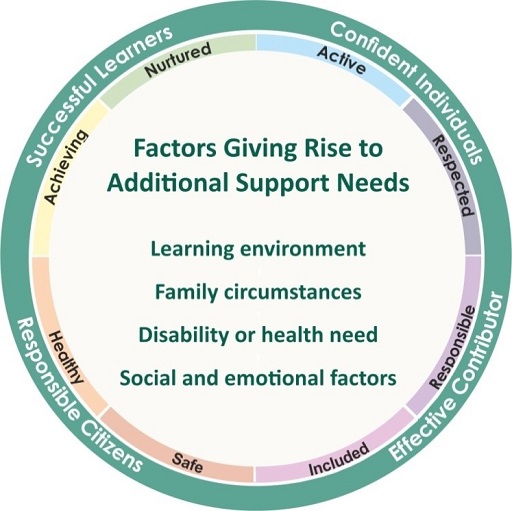Defining ‘additional support needs’
A Blueprint for 2020: the expansion of early learning and childcare in Scotland (Scottish Government, 2018a) states that:
ELC provision must therefore be delivered in a way that ensures equality of access for, and accounts for the varying needs of, all children. Children should be able to learn free from discrimination and in settings which actively tackle health and social inequalities. Additional support may be required, over the short or the long term, to overcome needs arising from the care and learning environment, family circumstances, health needs or disability or social and emotional factors. Those that may require additional support may include, for example, children with disabilities, children with English as an additional language, Gypsy/Travellers, highly able children, asylum seeking/refugee children and Service children (children from Armed Forces families) (p. 31).
This statement illustrates that ‘additional support needs’ is a broad term that applies to children or young people who, for whatever reason, require additional support in the long or short term in order to help them make the most of their education and to be fully included in their learning. It applies to children eligible for funding for ELC and children from the age of two, including those children in foster or
Additional support for learning aims to reduce barriers that may affect children’s learning. Such barriers may be physical ones in the environment, barriers caused by attitudes or because of routines in a setting not being adapted to suit the needs of children. Figure 1.3 summarises some of the factors that can give rise to children having a need that means that additional support is required.
1.2 Understanding additional support for learning

